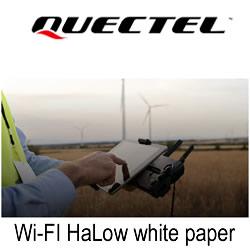Agricultural enterprises to improve productivity with AI solution delivered by Cognitive Pilot and Sberbank-Telecom
According to a Global Market Insights, Inc. report., the precision farming market is poised to rise from today’s USD4 bln to USD12 bln by 2025. Precision farming in Russia is in its infancy and is expected to boom in the next three to four years to be worth some RUB15–20 bln, analysts say.
July 7, 2020, Moscow — Cognitive Pilot, one of the world's leading developers of artificial intelligence systems for autonomous vehicles (a JV between Sberbank and Cognitive Technologies), and Sberbank-Telecom, a leading supplier of comprehensive telematics solutions and a vehicle telematics platform, have signed a strategic partnership agreement to create an all-new solution for the Russian and international market called Cognitive Sber Agro Analyst (CSAA). It is an integrated platform aggregating high-quality smart analytical data and monitoring agricultural operations, such as the yields and state of crops, farm equipment modes, fuel consumption rates, and other statistics.
According to a Global Market Insights, Inc. report., the precision farming market is poised to rise from today's USD4 bln to USD12 bln by 2025. Precision farming in Russia is in its infancy and is expected to boom in the next three to four years to be worth some RUB15-20 bln, analysts say.
The companies are scheduled to roll out an integrated SaaS solution based on Sberbank-Telecom's Smart Telematics Platform for comprehensive monitoring of equipment and machinery combined with the Cognitive Agro Pilot software and hardware suite based on Cognitive Pilot's AI and allowing you to run agricultural machinery automatically.
Olga Uskova, CEO, Cognitive Pilot:
"Jointly with Sberbank-Telecom we're set to market a unique solution in and outside Russia. Based on the Telematics cloud platform and AI technologies, it is designed to improve the efficiency of agricultural enterprises."
Ruslan Gurdzhiyan, CEO, Sberbank-Telecom:
"Collaborating with Cognitive Pilot, we are focused on expanding the capabilities of our platform and creating a comprehensive SaaS service for customers to monitor the quality of agricultural machinery's work, increase harvesting productivity, cut losses, and create relevant field yield maps based on the data obtained directly from the equipment."
The integrated solution features Sberbank-Telecom's Telematics cloud platform, and the Cognitive Agro Pilot suite, which includes a set of sensors (video cameras and radars, their number varying depending on the task), a display, an onboard computing unit (an agrodroid), and connecting cables.
While auto-piloting the equipment, the Cognitive Agro Pilot system for autonomous control of agricultural machinery collects comprehensive data from sensors on the status of agricultural processes and sends them to the Sberbank-Telecom cloud platform, where user-friendly tools of control and monitoring of equipment and processes, as well as digital field maps and analytical reports, are generated. The agricultural enterprises that activate the service will get an effective tool for controlling agricultural processes and monitoring the work of the equipment fleet, which is vital for building yield maps and detecting issues (for example, how much a harvesting header has captured and harvested, the quality of the grain that got into a bunker, grain harvest losses, how much grain trucks failed to deliver to the elevator, etc.).
The system also delivers analytical data about the parameters of a particular agricultural process and whether its comprehensive control is possible. The use of computer vision technologies for monitoring purposes will also help identify emergencies and incidents, such as the dangerous proximity of a piece of equipment with an obstacle.
Cognitive Pilot and Sberbank-Telecom professionals believe the joint solution will save up to 30% of costs an agricultural enterprise incurs by cutting unrelated expenses, analyzing bottlenecks, securing comprehensive control, and boosting the efficiency and transparency of business processes in agriculture.
The use of computer vision technology, in contrast to the use of GPS navigation, will help to collect data of a different quality. This includes movement safety control with the possibility of generating analytical and monitoring reports about the safety of agricultural machinery and maintaining operating modes that would be optimal from this point of view. On top of that, computer vision systems allow stakeholders to interpret a particular situation correctly and send accurate data about a particular process to the cloud platform. For example, when a harvester header fails to capture a significant cropping area, a "blind" system usually interprets this as a routine situation, only with less input data corresponding to the area missed by the harvester header. A computer vision-based solution, like a person, controls and detects errors while harvesting, which will be taken into account and documented when generating an analytical report.
The parties are currently finishing their work on the joint pilot solution. Its field tests are expected to start in Moscow Region as soon as in July this year.
Featured Product

